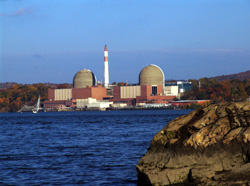The New York Court of Appeals on Thursday said it would hear challenges by energy companies and landowners to two upstate towns' bans on fracking, the controversial hydraulic fracturing process of extracting natural gas from underground shale.
The Court of Appeals will hear appeals by Norse Energy Corp. USA against the Town of Dryden and Cooperstown Holstein Corp. against the Town of Middlefield.
Dryden, a town of 14,435 in Tompkins County, according to a 2010 U.S. Census Bureau report, amended its zoning laws in 2011 to ban fracking. And Middlefield, a town of 2,114 in Otsego County, passed a similar zoning law in 2011.
Both towns' laws were upheld unanimously in May by panels of appellate court judges. The courts rejected the argument by energy companies and landowners that the towns' zoning laws were trumped by the state's Oil, Gas and Solution Mining Law, which empowers the state Department of Environmental Conservation to regulate oil and gas drilling.
 |
| New York Court of Appeals in Albany, NY |
Fracking compnies believe local municipalities lack the expertise to properly regulate oil and gas drilling. They believe that the New York state regulatory scheme has always anticipated that the DEC have preemptive rights to regulate fracking decisions.
Fracking involves the use of high-pressure water, chemicals and sand to crack open deep underground rock that houses rich supplies of natural gas.
 The legal challenges haven't dissuaded New York communities from passing fracking bans. More than 170 New York communities have passed bans or moratoria, according to FracTracker Alliance, a nonprofit that monitors gas drilling.
The legal challenges haven't dissuaded New York communities from passing fracking bans. More than 170 New York communities have passed bans or moratoria, according to FracTracker Alliance, a nonprofit that monitors gas drilling.The Joint Landowners Coalition of New York, a group of 77,000 landowners, that support gas drilling believes that New York cannot have a 'not in my backyard approach' to energy development. (WSJ, 8/30/2013)

